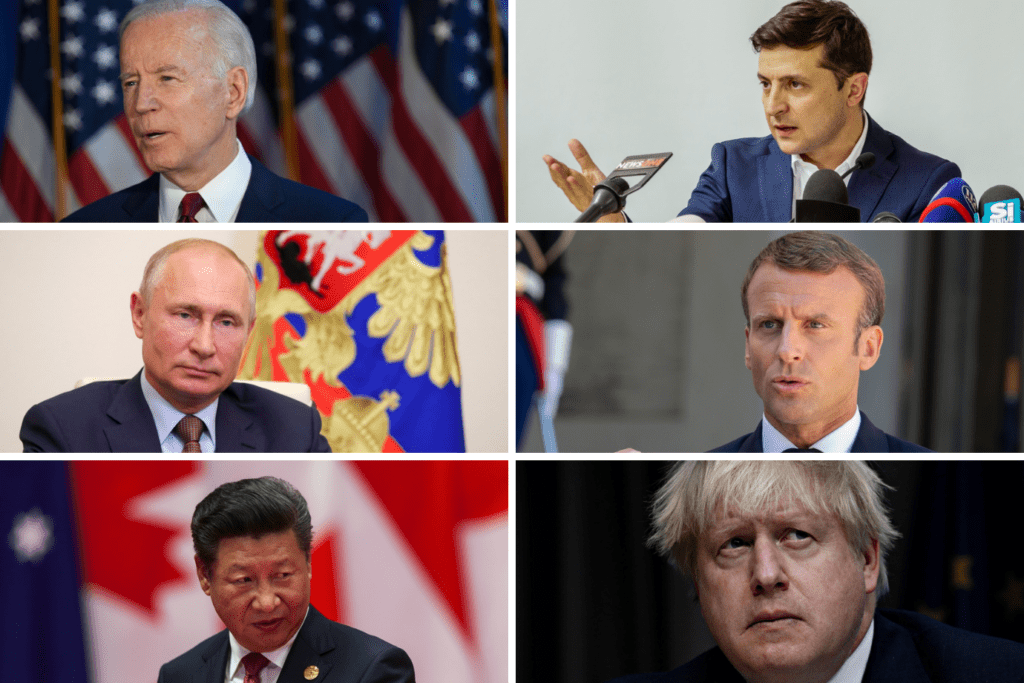Tensions between Russia and Ukraine have escalated rapidly over the past 24 hours, with Russian President Vladimir Putin recognising two breakaway regions in Ukraine’s east as independent states, and soon after dispatching Russian forces to the regions.
Putin’s recognition of breakaway regions Donestsk and Luhansk as independent states has been widely condemned by Western leaders as a breach of international law.
With Putin now openly moving troops into eastern Ukraine for “peacekeeping”, the stakes of the crisis have just been upped and it is being recognised internationally as a significant escalation.
Ursula von der Leyen, the European Commission’s president, said the recognition of two separatist territories in Ukraine is a blatant violation of international law and the territorial integrity of the Ukraine and Minsk agreements.
Here, we’re providing an explainer of the crisis, looking at eight male world leaders and what they’ve said and done over the past few days.
Russian President Vladimir Putin
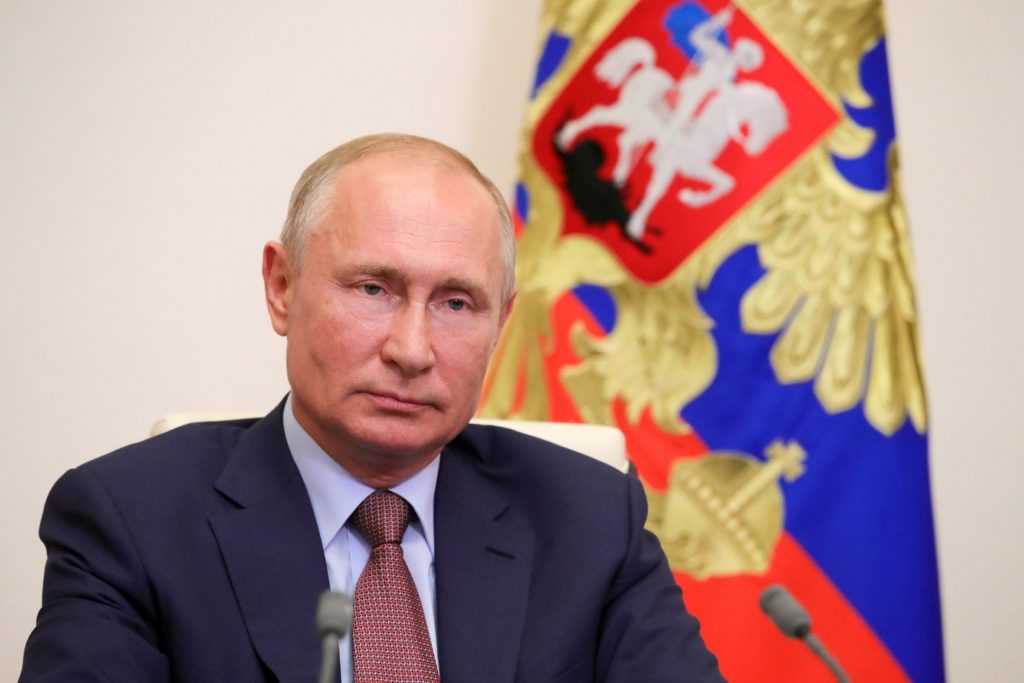
During an hour-long televised address in Russia overnight, President Vladimir Putin declared Ukraine had “become a colony of puppets” and accused it of being a “US colony”. Without evidence, he accused the Ukrainian government of corruption, and attacked the idea of Ukraine joining the NATO defence alliance.
He then confirmed that Russia would recognise the self-declared people’s republics of Donestsk and Luhansk as independent states, and said he asked the Russian parliament to ratify the decision as soon as possible. It means Putin is able to openly move troops into Eastern Ukraine, a decision he has now acted on.
“I deem it necessary to make a decision that should have been made a long time ago — to immediately recognise the independence and sovereignty of the Donetsk People’s Republic and the Luhansk People’s Republic,” Putin said in the televised speech.
United States President Joe Biden
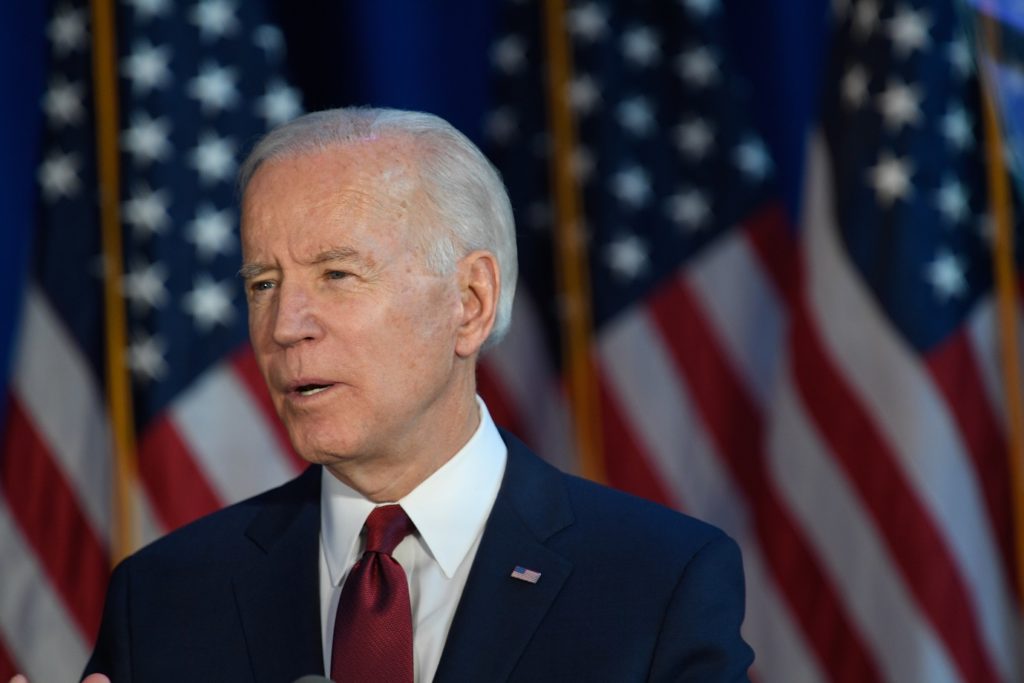
Last month, US President Joe Biden reiterated that he has been “absolutely clear with President Putin” regarding the crisis.
“He has no misunderstanding. If any assembled Russian units move across the Ukrainian border, that is an invasion,” Biden said.
“It will be met with a severe and coordinated economic response that I’ve discussed in detail with our allies, as well as laid out very clearly for President Putin.”
The US has repeatedly said it would defend Ukraine should Russia invade.
Overnight, White House press secretary Jen Psaki announced that Biden signed an executive order to sanction any Americans who invest in the two breakaway eastern Ukraine regions of Donetsk and Luhansk. According to the statement, Biden’s order will prevent Americans from new investment, trade and financing to, from or in the regions, in response to what Psaki described as a “blatant violation of Russia’s international commitments.”
This latest executive order is unrelated to the economic measures Biden and other Western allies have pledged to inflict on Moscow should Russia further descend on Ukraine.
“We have anticipated a move like this from Russia and are ready to respond immediately,” Psaki said. “We are continuing to closely consult with allies and partners, including Ukraine, on next steps and on Russia’s ongoing escalation along the border with Ukraine.”
On Monday, Biden spoke with Ukraine President Volodymyr Zelesnkyy while Putin delivered his televised speech justifying his decision to recognise the two eastern Ukrainian separatist regions of Donetsk and Luhansk as independent states.
Biden also made a call to French President Emanuel Macron and German Chancellor Olaf Scholz, where the trio discussed Russia’s advance along Ukraine’s borders.
All three leaders strongly condemned Putin’s decision to recognise Donetsk and Luhansk as “independent” states and conferred how they will continue to plan their next steps. In the past 72 hours, Biden has met with members of his national security team at the White House, including Vice President Kamala Harris, Secretary of State Antony Blinken, Defense Secretary Lloyd Austin, Homeland Security Secretary Alejandro Mayorkas, and Gen. Mark Milley, chairman of the U.S. Joint Chiefs of Staff.
This morning, a senior official said the Unite States expects Russian troops could move as soon as tonight or tomorrow for their so-called “peacekeeping” mission, which may include loading amphibious ships and loading equipment for airborne units.
“We will observe and assess what actions Russia actually takes and respond accordingly,” the official said.
“This has been the state of affairs in that region…we will take further measures tomorrow to hold Russia accountable for this clear violation of international law and Ukraine sovereignty and territorial integrity.”
French President Emmanuel Macron

Between 2014-2015, Kyiv and Moscow signed a ‘peace agreement’ which aimed at securing a ceasefire between the Ukrainian government and Russia-backed separatists in Luhansk and Donetsk. In the last month, French President Macron has been trying to use this deal, called The Minsk agreements, to prevent a full-scale invasion by Putin’s forces.
Marcon said the peace deal was the “only path on which peace can be built”, though it was never completely implemented.
In recent weeks, Macron has spoken directly to Putin, and in the last 24 hours, he has called for “targeted European sanctions” against Russia.
On Monday, he condemned the move to recognise two eastern Ukrainian separatist regions as independent, insisting the European Union to agree new sanctions against Moscow.
“The president condemns the decision…. He is demanding an emergency meeting of the UN Security Council as well as the adoption of targeted European sanctions,” Macron said in a statement.
“This is clearly a unilateral violation of Russia’s international commitments and a breach of Ukraine’s sovereignty.”
Chinese President Xi Jinping
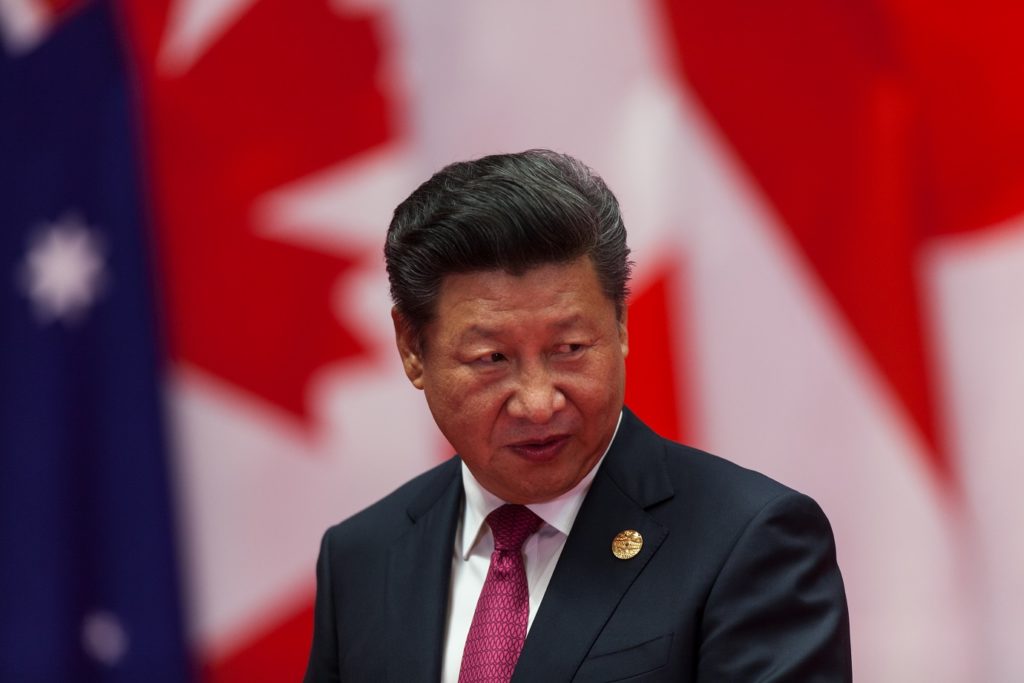
Earlier this month, China joined Russia in opposing the expansion of NATO, indicating a fresh cooperation between Chinese president Xi Jinping and Putin.
In late January, China’s foreign minister Wang Yi publicly offered support for Putin in its stand-off with the US and Nato over Ukraine, remarking that Moscow had “reasonable security concerns”.
Wang has since shifted his tone, telling reporters at a European security conference over the weekend that “the sovereignty, independence and territorial integrity of any country should be respected”.
“We hope that a solution can be found through dialogue and consultation that will really guarantee security and stability in Europe,” he said.
UkraiIn President Volodymyr Zelenskyy

In the past few days, Ukrainian President Volodymyr Zelenskyy has been tweeting about the latest crisis. Early this morning, he tweeted “Discussed the events of the last hours with [US President Joe Biden]. We begin the meeting of the National Security and Defense Council. A conversation with [UK Prime Minister] Boris Johnson is also planned.”
“Given the statements made at the meeting of the Security Council of the Russian Federation, I held urgent consultations with [French President] Emmanuel Macron and [German Chancellor] Olaf Scholz and convened the National Security and Defense Council.”
A few hours ago, he provided an update on the meeting of the National Defense and Security Council, where he met with UK Prime Minister Boris Johnson. He also announced plans to speak with President of the European Council, Charles Michel and president of Turkey, Recep Tayyip Erdoğan.
Zelenskyy was considered a political outsider when he won the 2019 elections in Ukraine. Since then, he as actively tried to distance Ukraine from Russia, calling on NATO leaders to expedite his country’s membership (a “dream of the Ukrainians”, he said) after Russian troops spread along the Ukrainian border at the end of 2021.
German Chancellor Olaf Scholz

German Chancellor Olaf Scholz visited Kyiv on 14 February and then Moscow the following day. “Working for peace is our goddamn duty,” Scholz tweeted after his meeting with Putin.
While in Kyiv, he tweeted that Ukraine’s sovereignty was “not negotiable”.
Overnight, Scholz’s spokesperson released a statement announcing that Putin’s decision to recognise two separatist regions in Ukraine as independent “will not go unanswered.” He also spoke to Biden and Macron on Monday evening about the “deteriorating situation”.
“All three parties agreed that this unilateral move by Russia is a clear breach of the Minsk Agreement. Germany, France and the US sharply condemned the Russian President’s decision. This move will not go unanswered,” the spokesperson said.
Scholz, Biden and Macron expressed their solidarity with Ukraine and commended Ukraine’s cautious response to date, led by President Volodymyr Zelensky.
“The partners agreed not to let up in their commitment to Ukraine’s territorial integrity and sovereignty. At the same time, every effort will be made to prevent the situation from escalating further,” the spokesperson concluded.
Scholz’s position is made more difficult by the Nord Stream 2 gas pipeline between Germany and Russia, which his Western allies have called on him to block, but on which no firm action has yet been taken.
Belarusian President Alexander Lukashenko
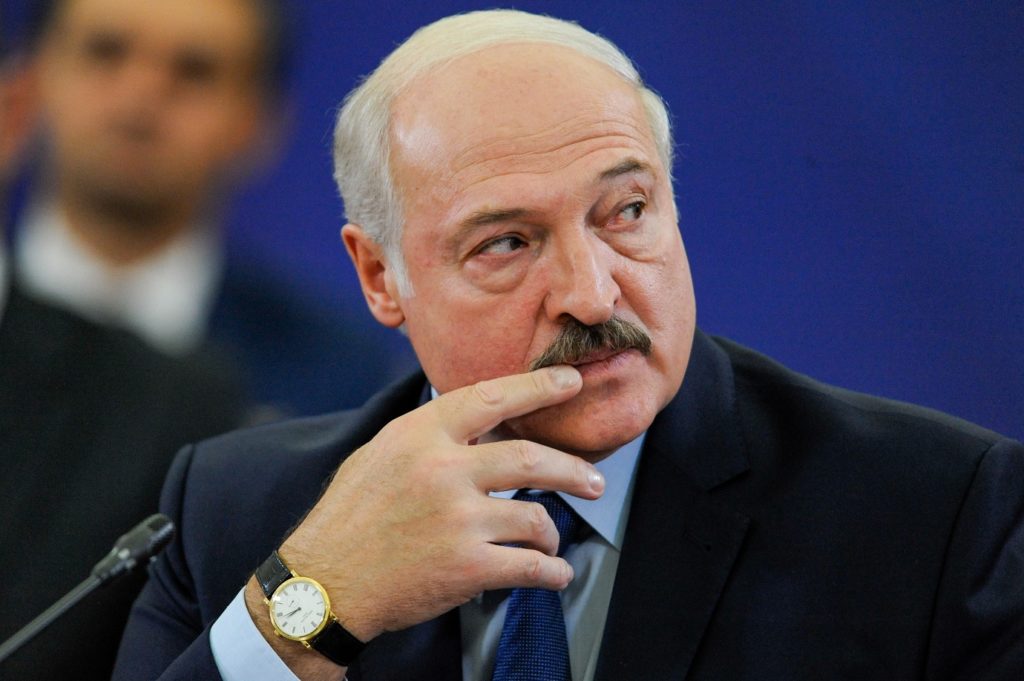
Since the establishment of his office in 1994, Europe’s longest serving president Alexander Lukashenko has been a firm ally of Putin. Last week, Lukashenko met Putin in Moscow, telling reporters afterwards that the West “is scaring the whole world saying that we are getting ready to attack, surround, and destroy Ukraine. But we have never had any such plans”.
Currently, Putin has placed 30,000 of his troops in Belarus, roughly 100 kilometers north of Kyiv, holding joint military exercises with Lukashenko’s forces and causing fears that the strategic location signally an invasion is on the horizon.
Ukraine have described the drills as “psychological pressure”, though as with Putin, Lukashenko continues to deny there will be a planned invasion.
“I’m certain there will be no war,” Lukashenko said this month. “We do not want war, but if someone does, the response will be totally asymmetric. I think everyone in the world understands that.”
Former US President Donald Trump
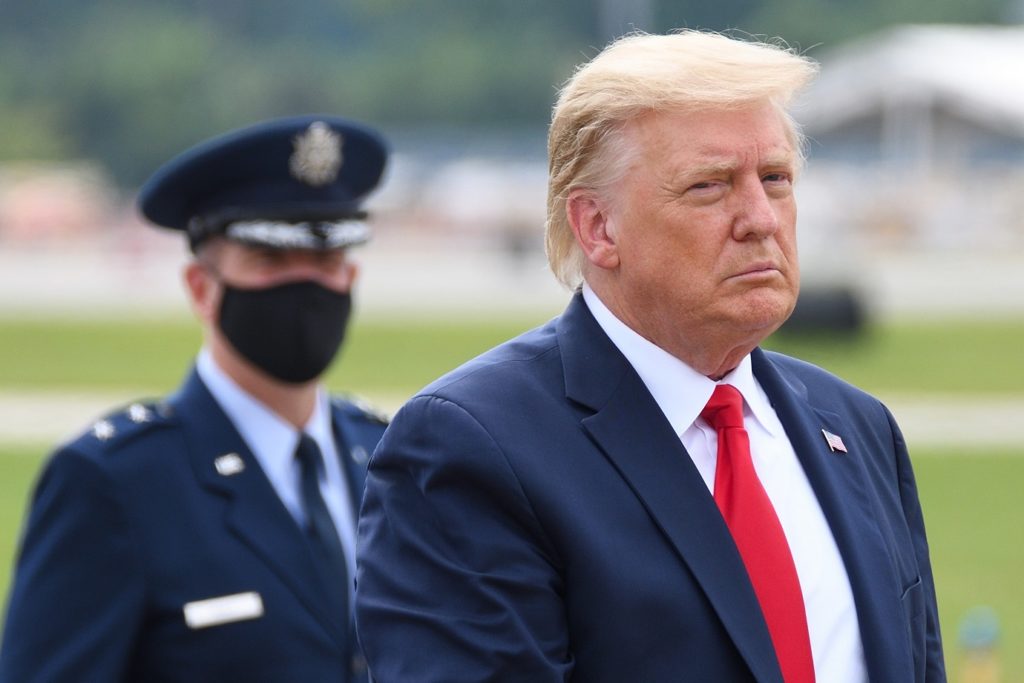
Last year, former US president Donald Trump was banned from Twitter, Facebook and YouTube. Overnight, his social media app, Truth Social, was officially launched.
In the midst, former White House Russia advisor Fiona Hill has come out to say that Trump’s foreign policy emboldened Russia to the point where it feels it can invade Ukraine.
“All this did was say to Russia that Ukraine was a playground,” Hill told CNN, referring to Trump’s campaign to pressure Ukraine for gossip about Biden in the lead up to the 2020 US election.
“Ultimately Putin wants some kind of deal. They think Biden is the kind of president who could actually make a deal. Trump never could.”
“They might have thought we were going to crumble, and we didn’t,” Hill concluded. “It might have deterred a full-scale invasion. Now (Putin) is basically recalibrating, recalculating.”
UK Prime Minister Boris Johnson
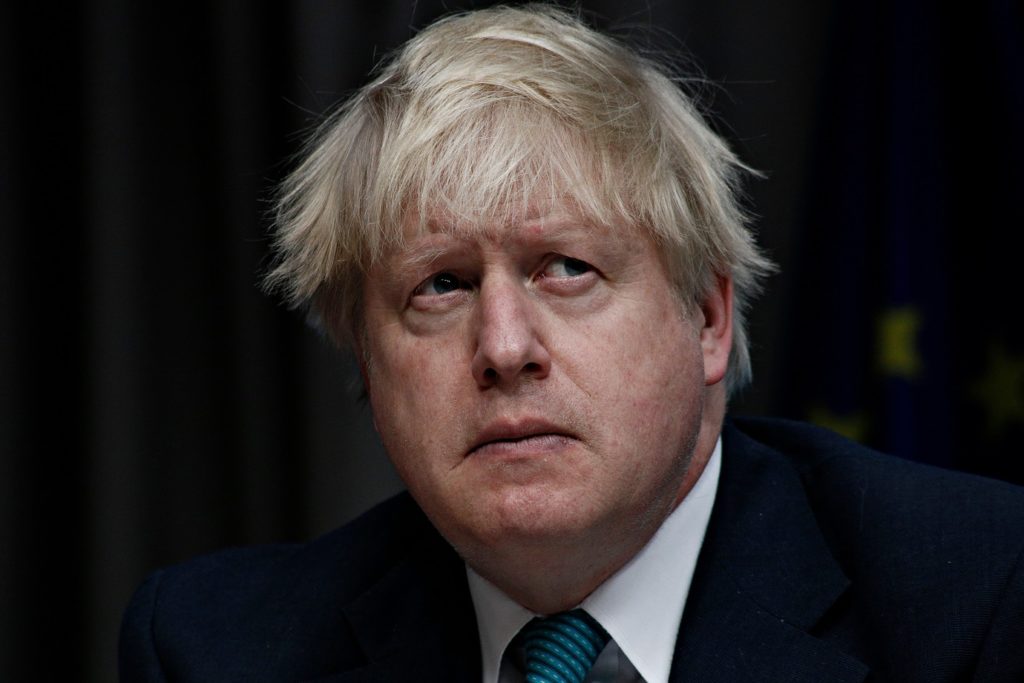
Overnight, the UK announced plans to create new sanctions on Russia, following Putin’s recognition of separatist regions in Ukraine.
Prime Minister Boris Johnson said the move was “plainly in breach of international law” and was a “flagrant violation of the sovereignty of Ukraine”. He said it was a dark sign that the crisis was moving in the wrong direction.
On 10 February, the UK tightened its sanctions regime against Russia when new legislation was set out in Parliament. In an interview with the BBC after making a speech on Saturday in Germany for the Munich Conference, Johnson said Putin’s plan was to launch “the biggest war in Europe since 1945.”
“I think people need to understand the sheer cost in human life that that could entail – not just for Ukrainians, but also for Russians and for young Russians,” Johnson said.
“What we don’t want to see is a violent invasion that would take away one of the most important gains of my lifetime, which was the creation of a Europe whole and free.
“What matters is the sovereignty and independence of Ukraine and ultimately, that is still for Ukrainians to determine.
“People will draw the false conclusion that might is right and that aggression pays, and so what we’ve got to ensure is that it doesn’t pay off, and even if a lightning war is initially successful, that over time, through our economic might, through all the pressure we can bring, we make sure that this this venture does not succeed.”

